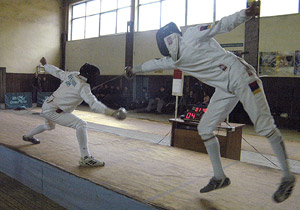There are three days left until the constitutional amendments referendum and the protagonists of the political field have already made clear decisions. As to how clear the reasons are for those decisions, that is a different story. We understand why the president and the authorities are striving to pass the constitutional amendments. We understand why the opposition plans on boycotting the referendum. But what we don’t understand is why international structures propagandizing “yes” to the amendments. They are not only propagandizing “yes”, but they are also pressuring the voters by stating the negative consequences that voting “no” will have on Armenia. What is the reason for this?
It is evident that the proposed constitutional amendments draft will not turn Armenia more democratic and that has been stated many times. What’s more, many specialists have stated their opinions about the draft proposed by the coalition and claim that is not advanced when it comes to democratic freedoms. So, why are international structures so active in the “yes” propaganda and go against their way of working? There are two possible explanations. First, the authorities have explained to the international structures that only after the constitutional amendments will they be able to do constructive work, such as solving the Karabagh peace settlement; and international structures have fallen for this (or they have made the authorities believe that they are in for it and have decided to eliminate this too). Secondly, international organizations understand that there will be a big chance of inter-political crises in Armenia after the constitutional amendments and that means that those organizations will have the opportunity to get involved in Armenia’s internal affairs. Basically, Armenia will turn into to weak country after the amendments and that is what the international organizations want. As to which one of these explanations is the closest to reality is hard to say for now, but it is a fact that the organizations are not saying “yes” to the amendments just for the “sake” of the president and the coalition.
As for the opposition’s activities, they will not carry out their “plan” on November 27, but the next day. As we all know, Raffi Hovhannisyan will hold a civil meeting on November 25 (basically, a public meeting) where there will most definitely be oppositionists.
Generally, when oppositionists gather in one place there always seems to be some intrigue. This intrigue does not refer to what will be the next step taken by the opposition, but rather which political force will be the first to “put down” the reputation of the opposition.
We can believe that there is no such issue this time at first sight because all members of the opposition have decided to boycott the referendum. Besides that, the opposition is unified when it called back its committee members back (even those members who are against retreating have agreed to the decision made by a majority of the opposition). But on the other hand, it is clear that the destiny of the referendum will not depend on the referendum process, but rather, how active the oppositionists will be to fight against falsifications and how they will stand up for the boycott. In other words, the destiny of the referendum will not be decided at the polls, but at the meeting to be held on November 27. But it appears that the opposition is not so unified as one when it comes to that. For example, Artashes Geghamyan still hasn’t decided whether or not his political party will take part in the referendum on November 27. If you may recall, the “National Unity” political party leader also went against fighting against something through civil meetings during the 2003 presidential elections and gave his followers “freedom” to vote for whoever they wanted in the second stage of the elections. Perhaps he will do the same thing this time too-he will provide them with the choice to either take part in the referendum or not. Let’s take into account the fact that in general this kind of liberalism is praiseworthy, but when the commander of the army gives his soldiers the choice to defend themselves or not to defend themselves against the enemy based on their desire, we can not consider that as “liberalism” even if we wanted to. In addition, Artashes Geghamyan himself has compared November 27 with the battle of Borodin.
Anyway…in a matter of days we will know how many people the authorities managed to “inform” and how unified the opposition is.

